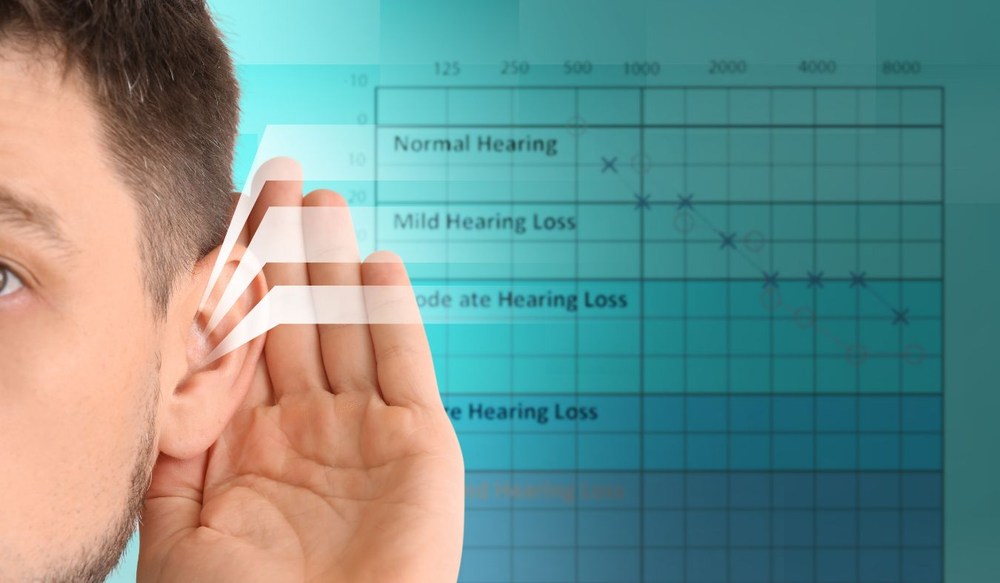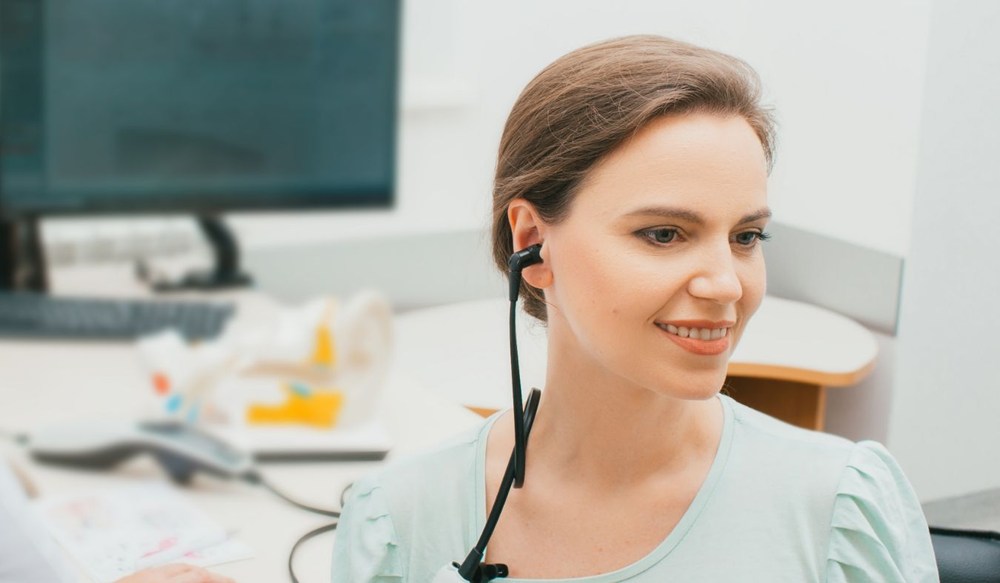How to Advocate for Yourself During a Hearing Test
A hearing test isn’t just something that happens to you while you

By: admin | February 18, 2025
Your ears do more than help you hear – they’re also key to helping you stay steady on your feet. You might not think about the connection between your hearing and balance until something feels off, like feeling dizzy when you stand up or unsteady when walking.
Many people are surprised to learn that the same inner ear system that processes sound also helps keep you balanced. When one part of this system isn’t working well, it can affect both your hearing and your stability. This explains why some people with hearing issues might also notice changes in their balance.
Understanding this connection between hearing and balance can help you make sense of symptoms you might be experiencing. If you’ve noticed changes in either your hearing or balance, the other might be affected too.
Taking care of your hearing health means looking after your balance too. Better understanding of how these systems work together can help you maintain both your hearing and stability.
Our ears are more than just the visible outer part. They’re a complex system divided into three main sections: the outer ear, middle ear and inner ear. Each of these sections plays a vital role in our ability to hear and maintain balance.
The outer ear catches sound waves and directs them into the ear canal, where they reach the eardrum. When sound waves hit the eardrum, they create vibrations that travel through the middle ear. This section houses three tiny bones – the malleus, incus and stapes – that amplify the vibrations and pass them along to the inner ear.
The inner ear is where these vibrations are converted into electrical impulses. Inside the cochlea, a fluid-filled structure lined with thousands of tiny hair cells, sound vibrations stimulate the hair cells to send signals to the auditory nerve. This nerve carries the signals to the brain, where they are interpreted as recognizable sounds, from speech to music to everyday noises. This entire process happens in a fraction of a second, allowing us to engage in conversations, react to our surroundings and enjoy the world of sound around us.
The balance system, also known as the vestibular system, is located in the inner ear and works closely with the brain, eyes and muscles to help us maintain stability and coordination. It allows us to stay upright, move smoothly and adjust our posture as we navigate different environments. This system constantly processes sensory information, making split-second adjustments to keep us balanced, whether we’re walking on an uneven surface or simply turning our head.
Within the inner ear, the vestibular system consists of three semicircular canals and two otolith organs (the utricle and saccule). The semicircular canals detect rotational movements, like turning your head from side to side, while the otolith organs sense changes in position and linear movements, like going up in an elevator or tilting your head. These structures contain fluid and tiny hair-like sensors that respond to movement, sending signals to the brain about changes in motion and spatial orientation.
The brain processes this information along with input from the eyes and body to create a sense of balance. When everything functions properly, we can move smoothly and confidently. However, if the vestibular system is disrupted – due to injury, illness or other factors – it can lead to dizziness, vertigo or difficulty with coordination. This is why hearing and balance are so closely connected, as both rely on the intricate workings of the inner ear to function properly.
When someone speaks or a car honks, it creates sound waves that travel through the air. These waves enter your outer ear and move down the ear canal, causing your eardrum to vibrate. This vibration then moves tiny bones in your middle ear known as ossicles. The movement of these bones amplifies the sound vibrations and sends them into the inner ear.
In the inner ear resides an extraordinary structure called the cochlea – shaped like a snail shell and filled with fluid. The amplified vibrations cause this fluid to ripple, moving tiny hair cells lining the cochlea walls. As these hair cells sway, they create electrical signals which are picked up by auditory nerves.
These nerves act like super-fast highways carrying these signals straight up to your brain where they’re interpreted as sounds you recognize – be it words from a conversation or honking of cars on the street!
Hair cells are microscopic sensory cells located within the cochlea of our inner ear. They are instrumental in converting sound vibrations into electrical signals that our brain can interpret as sound. These delicate cells, arranged neatly like rows of wheat swaying in the wind, respond to the movement of fluid within the cochlea caused by incoming sound vibrations.
Damage or loss of these hair cells can lead to hearing loss since they cannot regenerate. Thus, protecting these tiny powerhouses is vital for maintaining good hearing health. Regular check-ups with your audiologist can help detect any early signs of damage and take preventive measures accordingly.
Now, let’s focus on the vestibular system’s role in balance and spatial orientation. This vital part of your inner ear is like a built-in GPS, constantly sending signals to your brain about your body’s movements and position in space.
These signals are critical for maintaining balance and coordination. When you move your head, the fluid inside the semicircular canals of your vestibular system moves too. This movement stimulates tiny hair cells that send messages to your brain about the direction and speed of your head movement.
If there’s any disruption in this process – such as damage or disease affecting the vestibular system – it can lead to problems with balance or spatial orientation. Understanding this essential function of our inner ear highlights how interconnected our hearing health is with other aspects of our well-being. It underscores why taking care of our hearing health is not just about preserving sound perception but also ensuring overall physical stability and mobility.
When your vestibular system isn’t working as it should, things can feel a bit topsy-turvy. This system’s primary role is to keep you balanced and steady, so any hiccups in its function can lead to issues like dizziness, vertigo (a spinning sensation) or problems with coordination.
It’s not just about feeling unsteady on your feet. A malfunctioning vestibular system can also cause visual disturbances. You might experience difficulties focusing your eyes or following moving objects with your gaze. Even simple tasks like reading a book could become difficult if the words seem to jump around on the page.
The dizziness you experience can often be traced back to issues within your inner ear. Your vestibular system, which plays a key role in maintaining balance, might be disrupted due to various reasons. This could range from infections and inflammation to more serious conditions like Meniere’s disease.
Understanding the root cause of your dizziness is essential in determining the right treatment approach. Regular check-ups with hearing health professionals can help detect any abnormalities early on, enabling timely intervention and preventing further complications.
Hearing loss isn’t just about difficulty in catching conversations or missing out on your favorite sounds. It can also have a significant impact on your balance and, consequently, your daily life. This is because the inner ear, which plays a vital role in hearing, is also responsible for maintaining balance.
If you experience hearing loss, it could indicate issues within the inner ear that might affect your balance. This can lead to problems like dizziness or unsteadiness, making everyday tasks more difficult. Understanding this connection between hearing and balance is essential for managing any related issues effectively.
Managing balance issues that stem from hearing loss might seem overwhelming, but there are several effective strategies you can employ to improve your situation. Regular check-ups with your audiologist are vital to monitor any changes in your hearing and balance. They can provide valuable advice tailored to your specific needs and guide you through the process of managing these issues.
Physical therapy, specifically vestibular rehabilitation, is another helpful approach. This type of therapy involves exercises designed to improve balance and reduce problems related to dizziness. Similarly, maintaining a healthy lifestyle by staying active, eating a balanced diet and getting enough sleep can also have positive effects on your overall well-being, including your balance.
The road to better hearing health isn’t a passive one – it requires active participation and a commitment to understanding your body’s needs. It’s about making informed decisions, adopting healthy habits and seeking professional help when necessary.
Think of it as an investment in your future. By taking proactive steps today, you can potentially prevent or manage hearing loss and balance issues more effectively tomorrow. Regular check-ups with your audiologist are vital in this regard. They can monitor changes in your hearing and balance over time, helping you stay ahead of any potential issues.
Also, consider incorporating healthy habits into your daily routine – like protecting your ears from loud noises, maintaining a balanced diet, staying physically active and getting adequate sleep. These simple lifestyle changes can go a long way in preserving both your hearing health and overall well-being.
Paying attention to both your hearing and balance can make a real difference in your daily life. When one isn’t working as it should, the other may be affected, leading to challenges that are easy to overlook at first. Recognizing the link between hearing and balance can help you better understand symptoms like dizziness, unsteadiness or changes in how you process sound.
By staying aware of these connections, you can take steps to support both systems and address any concerns early on. Whether it’s through routine hearing checkups or being mindful of changes in your stability, caring for your hearing health means looking after more than just your ears – it’s about maintaining overall well-being.
If you are experiencing issues with your hearing or balance, don’t hesitate to reach out to a professional for help. The team at Hearing Wellness Centre is here to assist you on your journey towards better hearing health and stability. Contact us at our Windsor ON location by calling (844) 663-9433 for more information or to schedule an appointment.

A hearing test isn’t just something that happens to you while you
By: admin | October 20, 2025

Summer is a time for outdoor barbecues, beach trips and long walks in the
By: admin | July 29, 2025

When you find yourself asking people to repeat themselves more frequently
By: admin | June 20, 2025
